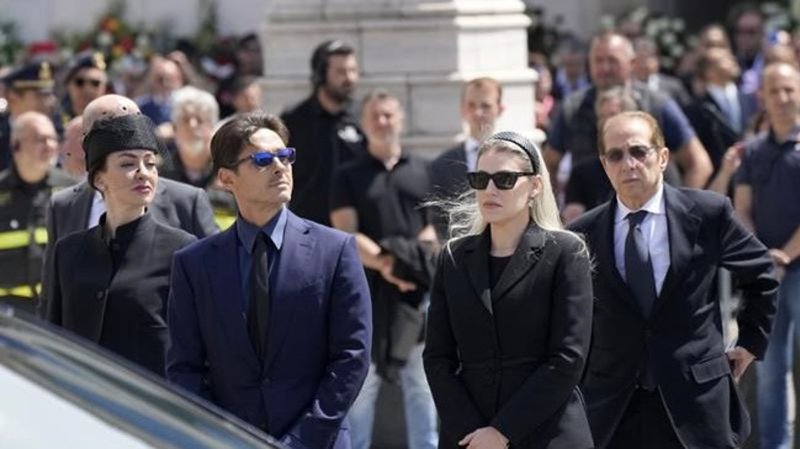
Casket of Italian ex-Premier Silvio Berlusconi is brought to cathedral for his funeral
MILAN (AP) — Silvio Berlusconi was honored Wednesday with a state funeral in Milan’s Duomo cathedral and a day of national mourning, as his legacy — positive or negative — was being hotly debated among Italians.
Tens of thousands of people outside the Duomo and within erupted in applause as a sign of respect as Berlusconi’s flower-draped casket was hoisted out of the hearse and into the cathedral. His children and companion teared up as the casket was placed in front of the altar.
Most Italians identify Berlusconi, a media mogul, soccer entrepreneur and three-time former premier, as the most influential figure in Italy over recent decades. But they remain sharply divided on whether his influence was for the better or worse, extending to whether the three-time former premier merits all the fuss and ceremony.
Berlusconi died at the age of 86 on Monday in a Milan hospital where he was being treated for chronic leukemia. His family held a private wake Tuesday at one of Berlusconi’s villas near Milan, the city where he made his billions as the head of a media empire before entering politics in 1994.



